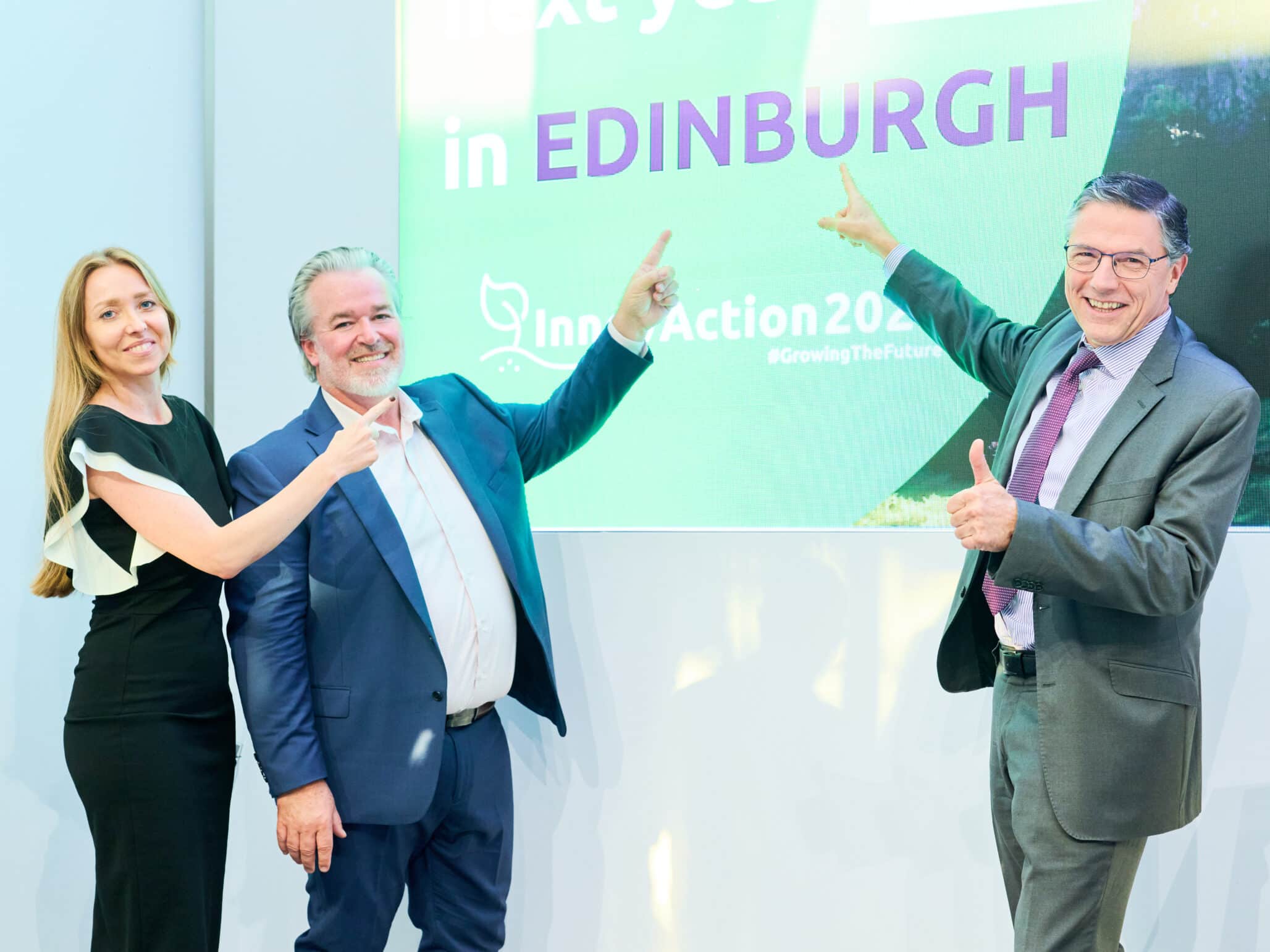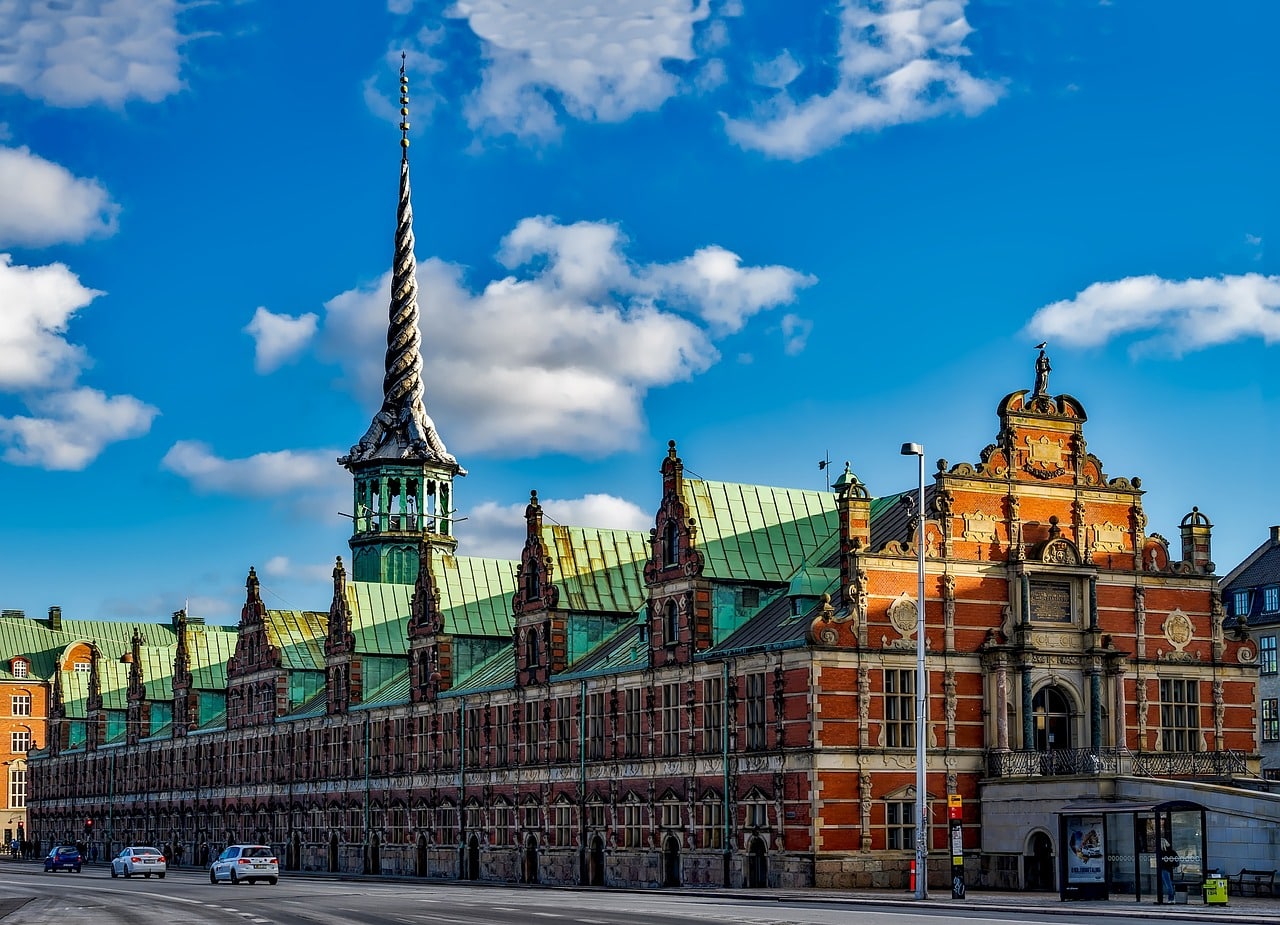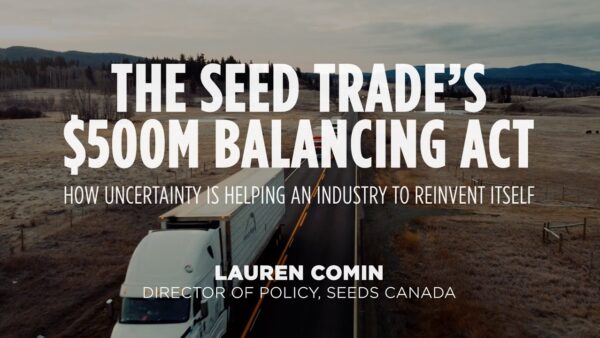Attendees have left Copenhagen after another successful Euroseeds Congress.
The Euroseeds 2024 Congress, held at the Tivoli Hotel in Copenhagen, brought together some 1,300 industry professionals, 50 exhibitors, and 500 traders from over 60 countries for three days of business and discussions on key issues in the European seed sector.
Highlights From the Event
The congress opened with a speech by Asbjørn Børsting from DAKOFO, who provided an overview of Danish agriculture, highlighting the Green Agreement 2024 and the role of plant breeding in reducing carbon emissions. Nils Elmegaard, representing the Danish Agriculture and Food Council and Danish Seed Association, spoke about developments in the Danish seed sector, focusing on key seed crops and new varieties emerging in response to climate change.
Andreas Wais from the International Seed Testing Association (ISTA) introduced new e-certificates, highlighting their efficiency, security, and cost benefits. Dr. Amelie Detterbeck of Euroseeds shared insights from the Horizon Europe project LegumeGeneration, which aims to advance legume breeding in support of the European Protein Strategy.
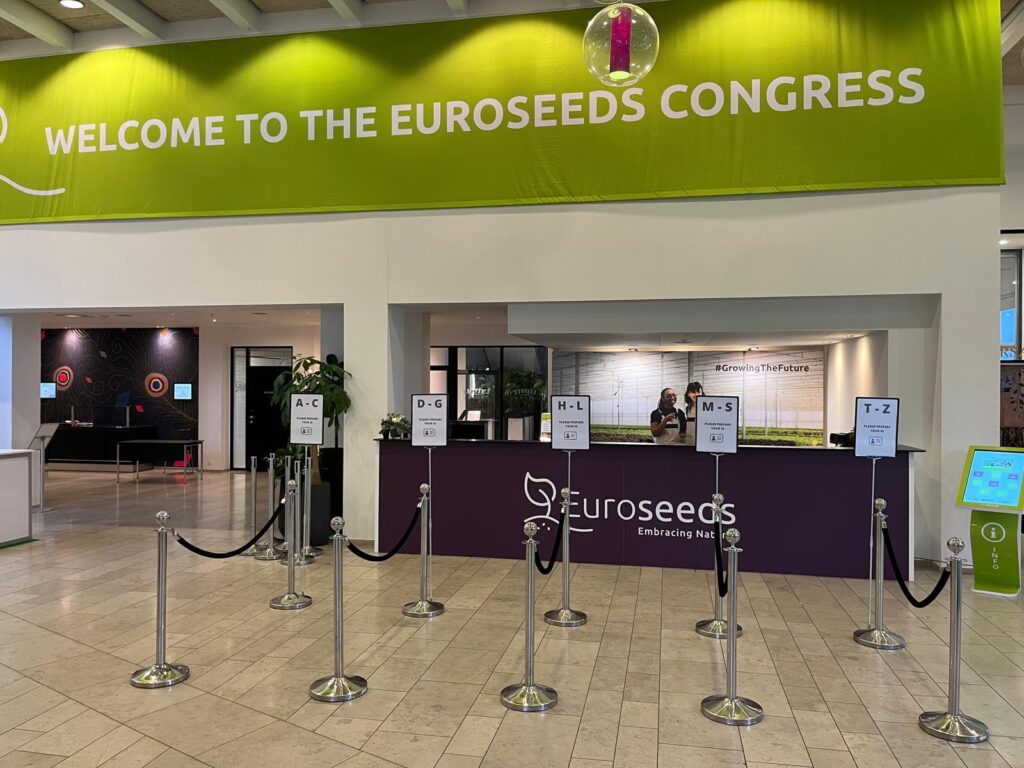
Szabi Ruthner from BASF Agricultural Solutions provided an update on the Working Group for Cereal Hybrid Crops, covering regulatory frameworks for hybrid cereals. Jared Onsando from Euroseeds addressed the new EU Plant Reproductive Material (PRM) Regulation, with a focus on dynamic conservation and the use of heterogeneous material.
The congress continued with a focus on the new EU PRM regulations, particularly regarding dynamic conservation and small packaging. Another key issue was the EU Deforestation Regulation (EUDR), which aims to reduce deforestation linked to EU imports, along with the potential effects of the draft EU regulation on packaging and waste management.
The congress also hihglighted innovation in biologicals, with Patrick Kabouw from Novonesis addressing challenges in the EU regulatory framework for pesticides and the future potential of biological solutions.
Intellectual property was another key focus. Francesca Garbato, Euroseeds’ Intellectual Property and Legal Affairs Manager, presented a fresh perspective on intellectual property in the breeding sector. Nuria Urquia Fernandez from the Community Plant Variety Office (CPVO) and Yolanda Huerta from the International Union for the Protection of New Varieties of Plants (UPOV) discussed the challenges and developments in plant variety rights systems.
The congress also explored market trends for key crops such as corn, sorghum, oilseed rape, sunflower, soybean, and hemp, focusing on production volumes, yield prospects, and market challenges, according to a press release.
Petra Jorasch from Euroseeds outlined the EU legislative process for New Genomic Techniques (NGTs) and the sector’s efforts to counter attempts to impose GMO-like regulations. Kardung Max from Wageningen University & Research shared findings from the GeneBEcon and DETECTIVE projects, suggesting regulatory options for NGTs.
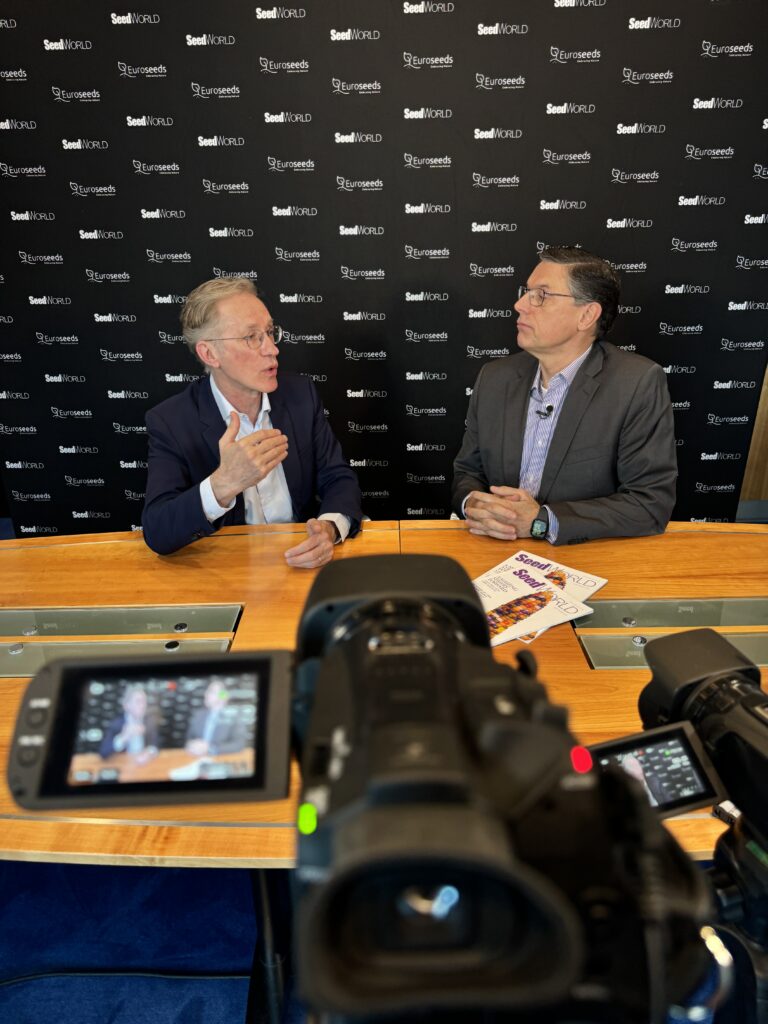
Amrit Kaur Nanda from Plants for the Future discussed trends in EU public investment in plant breeding research and innovation, urging for dedicated support in the next EU R&I Framework Programme. François Laurens from INRAE presented key outputs from the INVITE project, which focuses on improving the efficiency and quality of variety testing.
Corné van Beers from Breeders Trust outlined strategies to address illegal seed practices, while Aurelia Nicault, OECD Programme Officer, shared initiatives aimed at enhancing seed certification in developing countries, particularly in Africa, highlighting the need for capacity building.
Morten Boje Hviid, Director of Policy, Sustainability, and Communication at the Danish Agriculture and Food Council, discussed Denmark’s approach to achieving the Green Agreement, with an emphasis on the importance of collaboration between public institutions and private organizations to advance sustainability.
The congress concluded with a panel debate featuring Catherine Geslain-Lanéelle, Yves Madre from FARM EUROPE, Herbert Dorfmann from the EPP Group in the European Parliament, and Morten Boje Hviid. They discussed the future of agricultural policy in Europe, highlighting the importance of balancing environmental sustainability with economic viability and food security.
Closing out the Congress, Catherine Geslain-Lanéelle from the European Commission presented the EU’s vision for a sustainable agricultural future, emphasizing the vital role of the seed sector. She reaffirmed the Commission’s commitment to collaborating with industry stakeholders to ensure a stable regulatory environment that fosters growth and competitiveness in the sector.
Garlich v. Essen, Secretary General of Euroseeds, wrapped up the congress by highlighting the importance of leadership, clear priorities, and a strong commitment to advancing agriculture. He emphasized the need for flexibility, innovation, and investment to ensure a sustainable future for European agriculture.
The congress also marked a significant transition in Euroseeds leadership, as Michael Gohn of the Austrian Seed Association completed his term as Euroseeds president. In his farewell address, Gohn expressed gratitude for the collaboration, commitment, and dedication shown by all members during his tenure. He also offered words of encouragement to the incoming President, Søren Halbye from DLF.
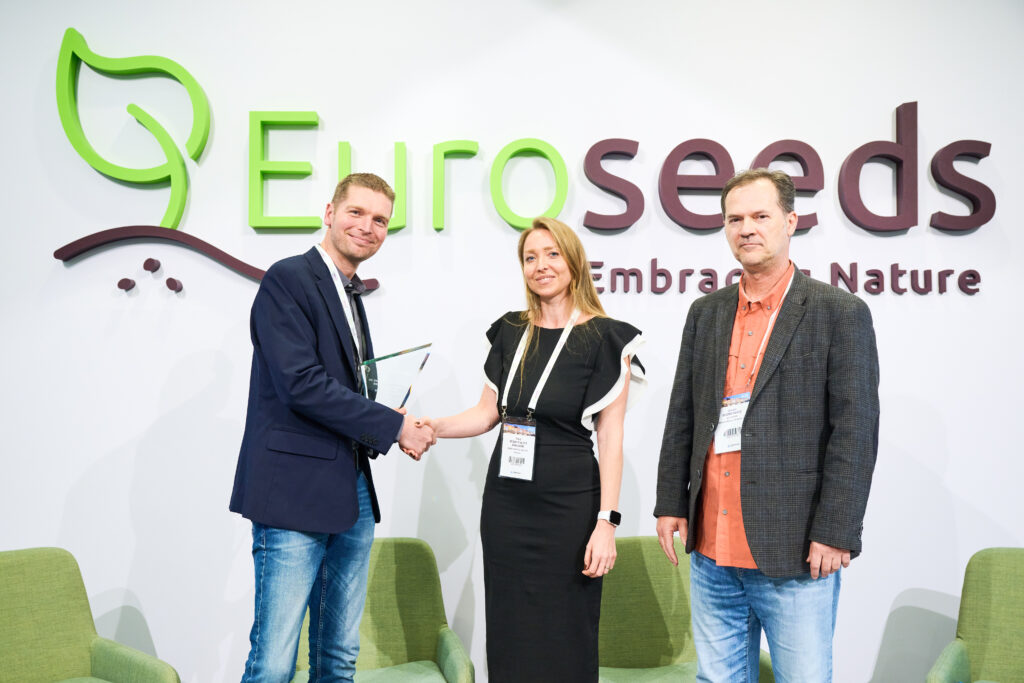
InnovAction Stage
The latest addition to the Euroseeds congress, the #InnovActionStage, showcased 12 groundbreaking technologies designed for various breeding solutions, including mobile cell analysis, machine learning, AI, CRISPR, gene editing, and 3D phenotyping.
A key highlight was the InnovActor 2024 Award, with Healthycrop recognized as the winner for its significant contributions to plant breeding innovation, while Amphasys and SMARTtray® were notable runners-up. The award ceremony, moderated by Shawn Brook, President of Seed World Group, began with a speech by Alec Asbridge, Senior Director at EY-Parthenon, who emphasized the importance of innovation and agricultural technologies within the value chain and farming community. The congress concluded with a panel discussion featuring the winner, finalists, and panelists, reflecting on the role of innovation in agriculture and its future trajectory.
Next year, Euroseeds will be held in Edinburgh, Scotland — see you there!


